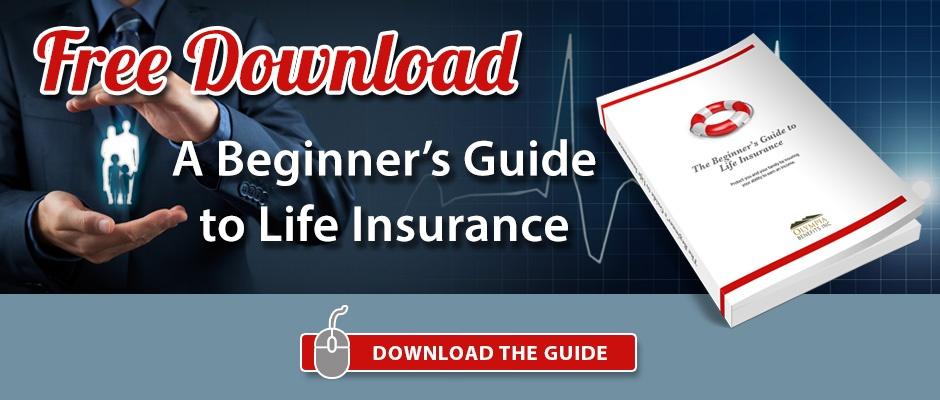As a business owner, on a personal level, you may know that your company could be faced with a serious situation if anything happended to you or to your partners.
In many cases the problem is simple: small business owners don't have any life insurance earmarked to support the business should they or one of thair partners die prematurely.
Many advisors will say that if people are counting on you, you need life insurance. Small-business owners like you certainly fall into that category. But your needs can be different than other people’s when it comes choosing the right coverage.
Should you die prematurely, a personal life insurance policy can replace your income and protect your family. In the event an owner, partner or key employee dies, life insurance could also ensure business can continue.
Here are things to consider when buying life insurance as a business owner.
Types of Insurance
There are two basic kinds of life insurance policies: term and permanent.
Term life insurance: This option is simple. You choose a death benefit -- how much money your heirs would be paid when you die -- and a "term" of how long you want the coverage to stay in place. For example, you might choose a $500,000 policy for a 20-year term.
Certified financial advisors agree that if a need is temporary, such as covering college costs or a mortgage balance, term insurance is the way to go.
Term is also a good option for business owners with partners who may be retiring at a certain date in the future. For example, imagine Jim and Sara own a business together. They have an agreement that if either dies before a future retirement date, the other partner would buy the deceased's half of the business. They might each take out term policies, making the partner the beneficiary. So if Jim dies, Sara would receive a life insurance payout that she could use to buy Jim's half of the business from his heirs.
The downside to term is that it's only good for a specific length of time. If you and your partner plan to stay in business forever, but your term insurance is over after 20 years, you could be without coverage. And, as people get older, term insurance is more expensive.
Permanent life insurance: These policies offer both insurance and an investment component, generally called "cash value." Part of your premiums pay for the insurance element of the policy and part goes to the investment part. This is unlike term insurance, which is insurance only. When you're done paying term insurance premiums and the term is over, you get nothing back. Permanent life insurance policies will always have the investment part, and even if you let the policy lapse, you can still walk away with your investment account.
The cost of permanent insurance is more than term insurance, but as long as premiums are paid, the policy stays in force for your lifetime. These kinds of policies are attractive to those who want insurance that will stay in force for longer than a specific term, or for a lifetime.
Depending on the kind of permanent policy, you can choose different ways to invest your cash value -- the investment portion of the policy. You can also often borrow against the investment portion and use the funds as you wish, or you can direct the insurance company to use the money in the investment account to pay premiums.
When you die, your beneficiaries would receive both the death benefit and the investment part of the account.
Permanent insurance can also be used among partners to help the surviving partner buy out the share of the business owned by the deceased partner.
Things to Consider
Deciding which kind of policy is best for you depends on your needs. You may decide both kinds of policies are appropriate.
Your family: First, consider your family. Life insurance will protect younger families from loss of income or to maintain a certain level of lifestyle in the event of an untimely death. Older couples may use insurance as a way to transfer wealth or a legacy to younger generations.
In addition, some families choose both a term policy and a permanent one to satisfy different needs.
For example, a young couple with two young children and a $300,000 mortgage may need a $500,000 permanent policy that will be in place to age 100, and a $1 million 25- or 30-year term policy to protect the family while the mortgage balance is high and the kids are young.
Your business: Business owners need insurance for similar reasons: income replacement and to protect the future of the company. If a partner, owner or key employee is suddenly gone, the business can deteriorate very quickly. With the right insurance in place, the surviving business partners will have enough capital to keep the business going while looking for a replacement for the deceased partner, or to buy out the heirs of the deceased partner.
Generally speaking, if a person plans on being active until death and the business really depends on that person, permanent insurance should probably be used.
Term insurance can work in the event a key employee of the business, who, for example, generate a high amount of income for the company or has unique skill sets were to die. The time frame for the insurance could be linked to the key person's expected retirement date or other negotiated time line.
Life insurance is also commonly used to buy out partners or shareholders in a buy/sell agreement if there's an unexpected death of an owner. Or if a partner personally guaranteed leases or loans for the business, then a term policy could be appropriate.
How much to buy?
How much insurance your family or business needs will depend on your expected income over your lifetime, debts and future expenses, and the general structure of your business. It's recommended to speak to an insurance advisor for assistance in this matter.
How to Buy?
Before you start shopping, make sure you go with a highly rated insurance company no matter what kind of policy you buy. You want to make sure that company will still be around decades in the future when your beneficiaries may need a payout.
But most business owners should get professional advice before buying. A professional insurance advisor may point out needs you didn't realize you have, or give you the pros and cons of various policies as they relate to your particular situation.
Related Reading: Learn How Your Family Can File a Life Insurance Claim
Interested in learning more about Life Insurance and how it can protect your family? Download our free ebook: The Beginner's Guide to Life Insurance.







